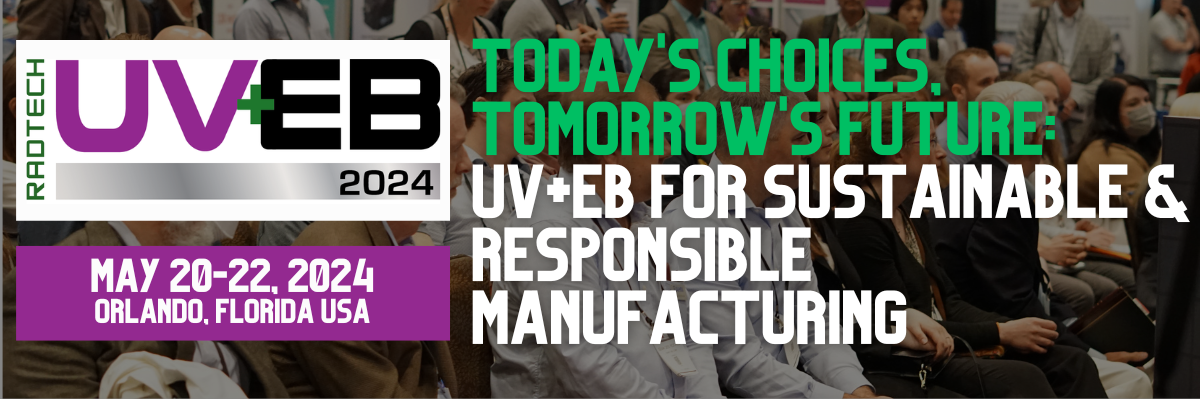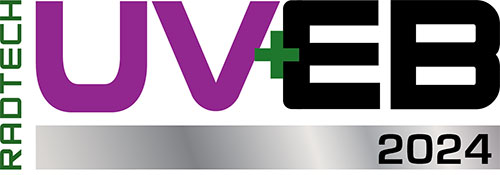
CONFERENCE PROGRAM :: Short Courses
Short Courses
UV/EB Professional Short Course (Undergraduate-Level)
Sunday, May 19, 2024, 1:00 PM – 5:00 PM
Faculty: Dr. Mike Idacavage, Radical Curing, LLC, Dr. Neil Cramer, Arkema, Gina Martinelli, Cork Industries
WHO SHOULD ATTEND?
Attendees for this course should be UV/EB professionals who are employed in the polymer or coatings industry. As a minimum, attendees should have had an undergraduate course in general chemistry and at least one semester of organic chemistry.
COURSE DESCRIPTION
This half day course is designed to acquaint UV/EB chemists and other technical professionals with the fundamentals of polymer chemistry at an undergraduate level. It will involve an overview of step-growth and chain-growth polymerization processes with special emphasis on the latter. Specifically, it will cover the chemistry of free-radical and cationic polymerization processes including kinetic and thermodynamic aspects of the subject. The session will include a detailed discussion of the chemistry of the photo initiation process and will highlight a variety of polymer characterization techniques for UV/EB polymers. In addition, formulation strategies for UV and EB curing will be discussed along with brief discussions on a wide range of applications.
FEES
$295 – member
$395 – non-member
Free – student
Advanced Photopolymerization Topics (Graduate level)
Sunday, May 19, 2024, 1:00 PM – 5:00 PM
Faculty: Dr. Susan Bailey, Michelman; Dr Molly Hladik, Michelman
WHO SHOULD ATTEND?
Attendees for this course may have extensive polymer or chemistry backgrounds who looking for an introduction into radiation curing. Alternatively UV/EB professionals that have experience in the field but are looking to gain new depth would also benefit.
COURSE DESCRIPTION
This course will begin with a brief review of photochemical and polymerization processes in UV/EB chemistry. From this common language, we will explore the implications of pigments, radiation sources, and environmental conditions on the cure reaction and performance of the final product. By focusing on the reactions and structure-property relationships, ways to understand and control the final product properties will be discussed. In addition to photo-initiated radical polymer chemistry, cationic, thiol-ene and hybrid chemistries will be used in examples. The course will cover implications for developing applications in low migration materials as well as requirements for inkjet, 3D printing and LED curing.
FEES
$$390 – member
$590 – non-member
$250 – student
UV 3D Printing Lunch and Learn (Intro-Level)
Monday, May 20, 2024, 1:00 PM – 2:00 PM
Faculty: Amelia Davenport, Arkema
WHO SHOULD ATTEND?
Attendees for this course who are interested in understanding the basics of UV curable 3D printing and seeing how to use the 3D printing process in their business.
COURSE DESCRIPTION
This short lunch course is designed to be an introduction to resin 3D printing. Terminology and general information will be covered to empower participants to ask relevant questions of machine and material suppliers. The course will cover general UV fundamentals that are used in 3D printing. The course will review different types of resin 3D printing technologies, the characteristics of each type, and how each might be best suited to various applications. An overview of example workflows will be shown to get familiar with additional considerations.
FEES
$100 – member
$150 – non member
$50 – student
Design of Experiments for UV/EB Scientists and Engineers
Pt 1 – Monday, May 20, 2024, 7:00 PM – 9:30 PM
Pt 2 – Tuesday, May 21, 2024, 1:00 PM – 3:00 PM
Faculty: Dr. Allan Guymon, University of Iowa
WHO SHOULD ATTEND?
This course will provide the foundation and motivation for using Design of Experiments to improve and optimize UV/EB curing processes and formulations. Students attending the course do not need previous experience in Design of Experiments or statistics. The course is appropriate for individuals with backgrounds ranging from technicians to Ph.D. scientists and engineers.
COURSE DESCRIPTION
Design of Experiments (DOE) is a powerful technique that allows the maximum amount of information to be obtained by performing the minimum number of experiments. For those in production, product design, or quality control, knowledge of DOE can dramatically enhance effectiveness in solving problems and optimizing systems. Most experiments not based on DOE concepts are two-dimensional, i.e. one variable is changed while a response is measured. DOE, on the other hand, varies all of the important variables simultaneously and systematically, thereby examining the response(s) in many dimensions.
Even with the great potential of DOE, few are familiar with its concepts. The goal of this course is to provide the basic tools needed for DOE implementation in the UV/EB industry. While DOE is based on statistical principles, primary emphasis will be placed on practical aspects in using and applying DOE techniques and on the motivation behind using DOE. Specific topics that will be addressed include:
• Background and History of DOE
• Steps in a DOE
• DOE Terminology
• Screening Designs
• Model Building Designs
• Mixture (Formulation) Designs
CEU CREDIT
Attendees taking this course will receive 0.6 CEU credits from the University of Iowa. CEU credit forms will be handed out to students the day of the course
FEES
$475 – member
$650 – non member
$325 – student
UV 3D Printing Lunch and Learn (Intro-Level)*
Monday, May 20, 2024, 1:00 – 2:00 PM
Faculty: Amelia Davenport, Arkema
COURSE DESCRIPTION
This short lunch course is designed to be an introduction to resin 3D printing. Terminology and general information will be covered to empower participants to ask relevant questions of machine and material suppliers. The course will cover general UV fundamentals that are used in 3D printing. The course will review different types of resin 3D printing technologies, the characteristics of each type, and how each might be best suited to various applications. An overview of example workflows will be shown to get familiar with additional considerations.
*Additional Fee Required to Attend
